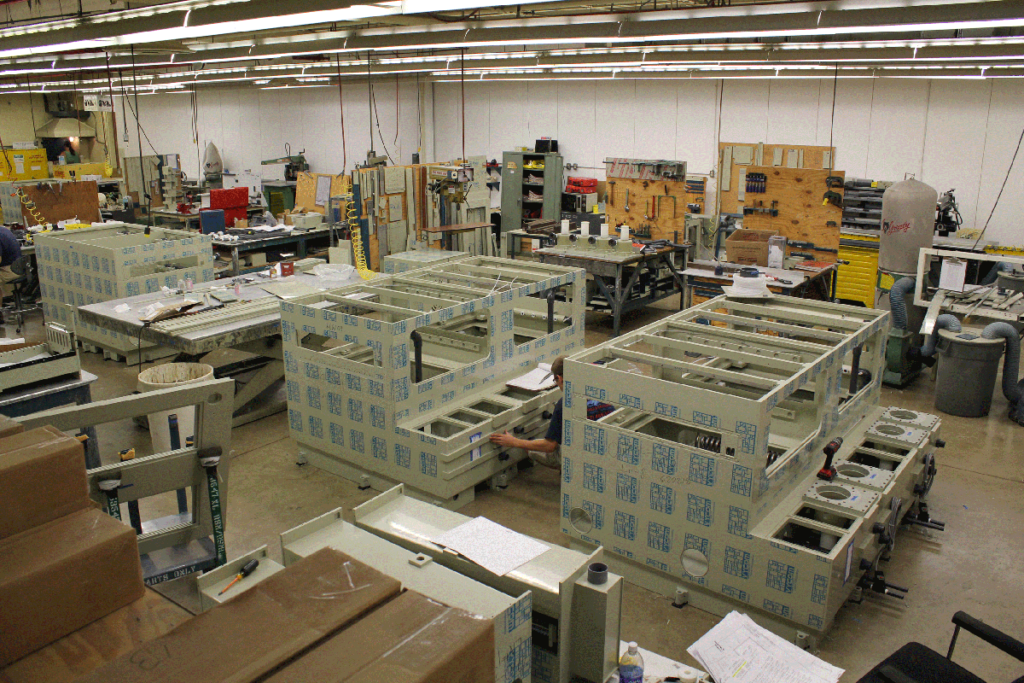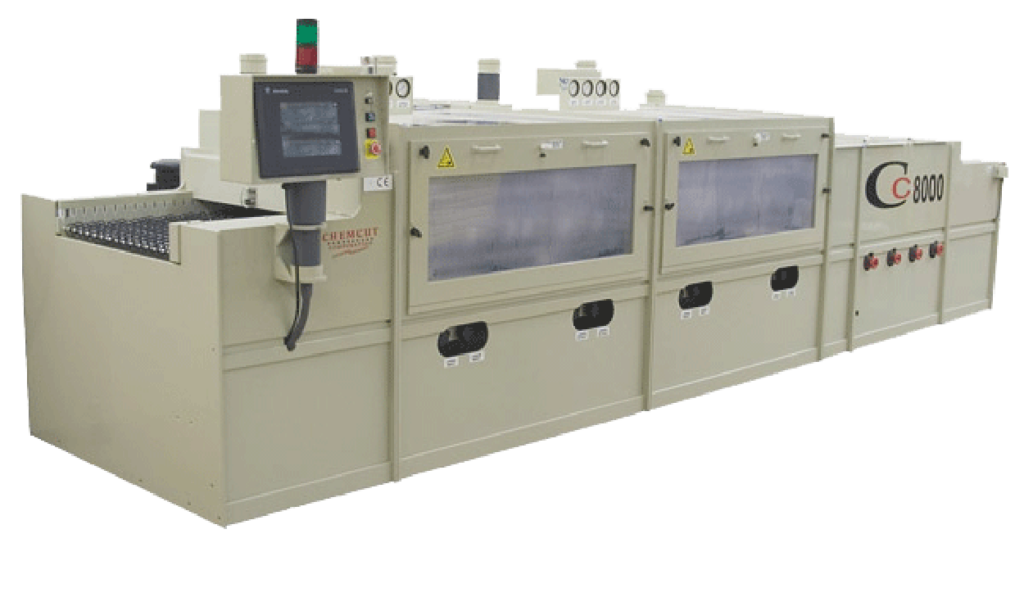By Stephanie Kalina-Metzger
When people hear the term “etching,” they may think of the process of carving a design into a surface. For State-College based Chemcut, etching takes on a bit of a different meaning. The company uses a technique called “wet processing,” where chemicals treat materials to shape them with exceptional precision. Instead of carving or cutting metal parts, Chemcut’s equipment use chemical solutions to etch away unwanted material, enabling the production of highly detailed and precise designs.

Industry impact
Chemcut’s technology serves a diverse range of industries, including electronics, metal parts manufacturing and solar energy. Printed circuit boards (PCBs), which are essential components of electronic devices, played a key role early on in establishing Chemcut’s reputation. The company’s innovations have since extended to products like medical devices, automotive clutch plates and glass processing equipment used to strengthen smartphone glass.
A Legacy of innovation
Foundedin 1957 as Center Circuits, the company later rebranded as Chemcut as it pioneered the first chemical etching equipment for mass-producing printed circuit boards (PCBs). CEO Rick Lies explains that over the years the company underwent several ownership changes. In 1980 it was purchased by German firm Schering AG and in 1993 by French company Elf Atochem (now Arkema). Eventually Chemcut returned to its original name and its employee-owned status.

Filling a niche
According to Lies, the company filled a much-needed niche, especially in the manufacturing sector. “PCBs needed to be mass produced and Chemcut made that possible with conveyorized double-sided spray etching. This process allowed for large-scale production, which was revolutionary for the electronics industry,” said Lies.
The company’s etching technology also supports other industries. A watch company, for instance, uses Chemcut’s equipment to produce their fine watch hands and the White House Historical Association’s annual Christmas ornaments are also etched using Chemcut’s technology, beginning as metal blanks, which are later painted.
Lies said that Chemcut is also proud of its commitment to the environment by providing solutions for treating wastewater from industrial production, thereby helping companies reduce waste and lower disposal costs, making their operations more environmentally friendly.
Expanding into semiconductor manufacturing
Over time, Chemcut has adapted their technology to cater to the evolving needs of the semiconductor industry with advanced etching techniques for complex chip designs. Lies cites recent legislation like the Chips and Science Act enacted in 2022, which aims to bolster U.S. competitiveness in semiconductor production, inspiring Chemcut to increase its focus on this sector. “The Act is also a response to global chip shortages,” said Lies.
Success secrets
Chemcut attributes its success to its commitment to customization, a skilled workforce and a strategic location in State College. Lies emphasizes the company’s ability to produce customized equipment for clients ranging from small mom-and-pop businesses, to global corporations.
“Our team designs and manufactures everything in house,” said Lies adding that the company’s 120,000 square-foot facility at 500-1 Science Park Road houses its research center, machine shop and mold shop there.
People power
Chemcut relies on a diverse team of mechanical, electrical and chemical engineers, along with chemists, scientists and craftspeople. The company draws talent from Pennsylvania State University’s main and Altoona campus, which has an excellent electro-mechanical engineering technology program, according to Lies.
“We continually improve our equipment according to demand and are proud of our talented workforce.”
A bright future
Chemcut’s ability to evolve with ever-changing market demands is one of its greatest strengths. “We continually improve our equipment according to demand and are proud of our talented workforce,” said Lies, adding that the company’s clients range from multinational corporations to small family-run operations.
Reflecting on the company’s journey, Lies expressed gratitude for the support of Chemcut’s team and the State College community. “We couldn’t have survived all these years without such an excellent team,” he said, adding that it’s just one of the reasons why the company chooses to do business in Happy Valley.
Do you know of any businesses that provide unique services? If so, let us know.
Stephanie Kalina-Metzger is a freelance writer whose work can be seen in publications across the United States. She can be reached at kalinacommunications@gmail.com

